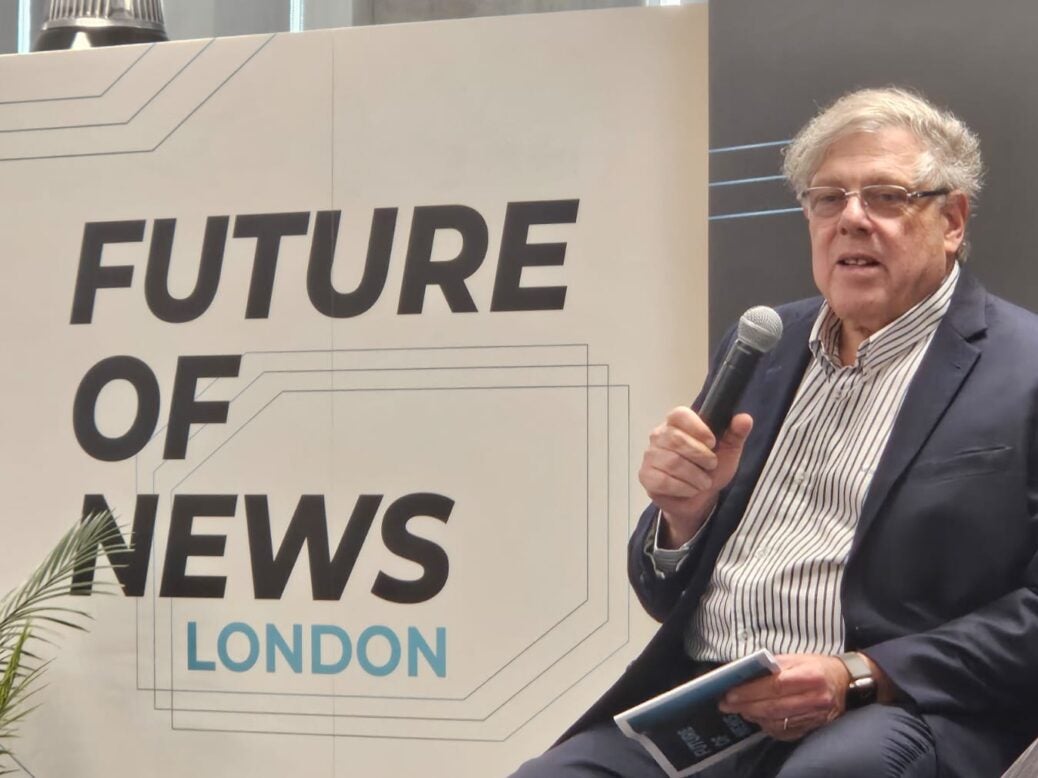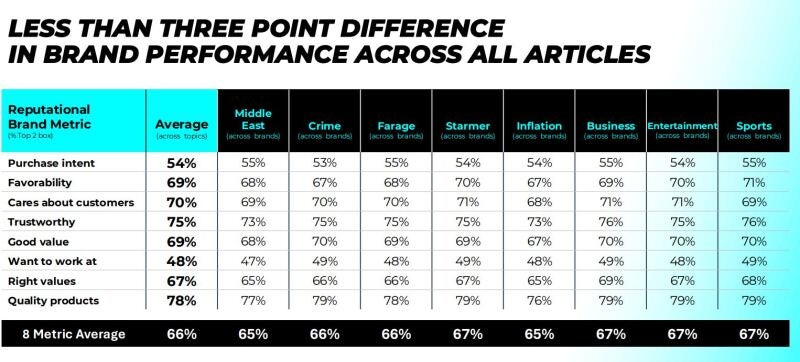
Publishers are needlessly losing billions in revenue because a generation of marketers thinks news is an “unsafe” place to put advertising.
This is the view of Stagwell chief executive Mark Penn, who has unveiled new research suggesting the obsession with brand safety has needlessly drained advertising revenue from the news industry.
Stagwell is a global advertising and marketing firm that employs 13,000 staff across 76 agencies. It has launched a campaign called Future of News which aims to persuade marketers to spend more money backing journalism.
Its research was based on a study of 22,116 adults conducted this month, which tested their response to online adverts placed next to a variety of types of content comparing harder news topics like crime and the Middle East to softer topics like entertainment and sports.
It found that, according to variety of metrics (including purchase intent, trust and values), ads appearing next to “non-brand safe” content performed as well as ads appearing next to “brand safe” content.
Penn has a 40-year career in PR and advertising and was formerly chief strategy officer at Microsoft.
He told Press Gazette: “When I was at Microsoft and I was in charge of the budget, I realised that the marketing agency had zeroed out news and that didn’t make any sense to me, so I did a study about it.
“I found there are about a quarter of the people who are news junkies, and I moved about a quarter of the budget, and they turned out to be the best-performing sites for technology.
“And then when I was being solicited in my positions here by these brand safety firms, I realised what was going on, which is that there’s almost been a brand safety con here that’s gone way overboard.”
Penn said marketers understandably don’t want their Boeing advert next to a plane crash, but that the brand safety industry has gone “way afield”.
Press Gazette has previously reported on how advertisers use “blocklists” to stop advertising against a range of topics which previously has included war reporting in Ukraine and public health messages around Covid-19.
Penn said the results of the research were conclusive: “Marketers really should open their minds up, limit brand safety to those really appropriate places, and advertise in the news, because: A, it’s good business, and B, it’s good social responsibility.
“Because at the end of the day, you want to support the ability for news organisations to support appropriate journalism, and if all the good journalism stories are systematically demonetised, then it puts the industry into a needless crisis.”

Penn said the brand safety “con” has taken billions of pounds and dollars out of the news industry.
News advertising in the UK has declined from £7bn in 2007 to around £2bn in 2023. The UK advertising market grew by 6% to £36.6bn last year, according to industry estimates, but all the growth went to tech platforms and more than half of that total was spent with two companies: Alphabet and Meta.
Penn said: “When I sit down with marketers, the number who have just said, ‘oh, yeah, we don’t advertise on news because it might be too controversial’.
“It’s just a surprising number of people who have bought into this idea. And this is, remember, the internet. The internet is about finding people who consume content and the people who go to news sites are content consumers, which means that they’re just as likely, if not more likely, to read and digest the information contained in your advertisement.”
Strong market of news junkies in the UK
The study also hit back at the idea that consumers are not interested in news. It found 76% of survey respondents said they closely follow the news, 25% read around five news articles per day and 10% only follow hard news (as opposed to entertainment and sport).
The study found that the 25% it categorised as “news junkies” are more likely to be higher earners (and so should be more attractive to advertisers).
Stagwell itself spends around $5bn a year on marketing for its clients.
Penn said his member agencies are going to advise brands to review their advertising budgets and ask themselves: “Are their buys appropriately balanced across all the mediums, based on on their products and their target market?
“The brand safety industry has been selling itself in an increasing way as protecting brands. And what I really find is that they’re stifling monetisation of news.”
The Future of News research was unveiled on Thursday night at Stagwell’s London office where speakers including Tortoise founder James Harding and former Newsnight producer Sam McAlister made the case to an audience of marketers about the importance of backing news.
McAlister said: “If you care about truth and integrity and empowering people, this is a wonderful opportunity. People have to seize this opportunity to be part of the truth revolution.”
Email pged@pressgazette.co.uk to point out mistakes, provide story tips or send in a letter for publication on our "Letters Page" blog
